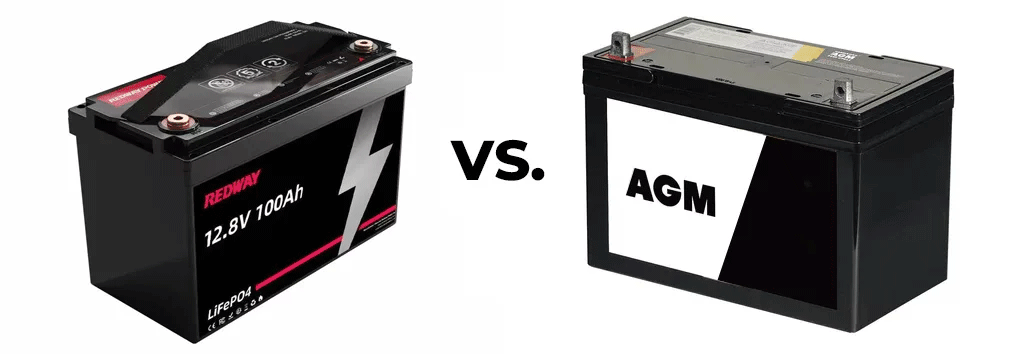The future of battery technology is rapidly evolving, driven by innovations that promise to enhance energy storage capabilities, safety, and sustainability. Key advancements such as solid-state batteries, silicon anodes, and alternative chemistries are set to revolutionize the electric vehicle (EV) industry and beyond. This article explores these innovations and their implications for the electric revolution.
What Are the Next-Generation Battery Technologies?
Next-generation battery technologies include:
- Solid-State Batteries: These batteries use solid electrolytes instead of liquid ones, enhancing safety and energy density.
- Silicon Anode Batteries: By replacing traditional graphite anodes with silicon, these batteries can significantly increase energy capacity.
- Lithium-Sulfur Batteries: Offering a higher theoretical energy density than lithium-ion batteries, they are seen as a promising alternative for future applications.
Chart: Comparison of Next-Generation Battery Technologies
| Technology | Energy Density (Wh/kg) | Safety Level | Current Status |
|---|---|---|---|
| Solid-State Batteries | 300 – 500 | High | In development |
| Silicon Anode Batteries | 400 – 600 | Moderate to High | Prototype stage |
| Lithium-Sulfur Batteries | 500 – 600 | Moderate | Research phase |
How Do Solid-State Batteries Improve Performance?
Solid-state batteries improve performance by:
- Increased Energy Density: They can store more energy in a smaller space, which is crucial for EVs.
- Enhanced Safety: The solid electrolyte reduces the risk of leaks and fires associated with liquid electrolytes.
- Longer Lifespan: They typically offer better cycle stability, leading to longer battery life.
What Role Do Silicon Anodes Play in Battery Advancements?
Silicon anodes play a crucial role by:
- Higher Capacity: Silicon can hold up to ten times more lithium ions than graphite, significantly increasing battery capacity.
- Faster Charging: Improved ion transfer rates lead to quicker charging times.
- Reduced Weight: Lighter materials contribute to overall weight reduction in battery packs.
How Are Researchers Advancing Lithium-Ion Battery Technology?
Researchers are advancing lithium-ion technology through:
- Material Innovations: Exploring new cathode and anode materials that enhance performance and reduce costs.
- Battery Management Systems (BMS): Developing smarter BMS for improved monitoring and efficiency.
- Recycling Technologies: Creating methods for recycling lithium-ion batteries to recover valuable materials.
What Is the Potential of Sodium-Ion Batteries?
Sodium-ion batteries present a promising alternative due to:
- Abundant Resources: Sodium is more abundant and cheaper than lithium, making these batteries potentially less expensive.
- Environmental Benefits: Reduced reliance on lithium can lessen environmental impacts associated with mining.
- Adequate Performance: While currently lower in energy density compared to lithium-ion, ongoing research aims to improve their performance.
How Does Recycling Impact Future Battery Development?
Recycling plays a vital role by:
- Reducing Waste: It minimizes environmental impact by recovering valuable materials from used batteries.
- Lowering Costs: Recycled materials can reduce production costs for new batteries.
- Sustainability: Promotes a circular economy within the battery industry, ensuring resource availability for future generations.
What Are the Key Trends in EV Battery Technology?
Key trends include:
- Increased Energy Density: Continuous improvements aim for higher energy storage capabilities.
- Faster Charging Solutions: Innovations are focused on reducing charging times significantly.
- Integration with Renewable Energy: Developing systems that work seamlessly with solar and wind power.
How Are Alternative Chemistries Changing the Landscape?
Alternative chemistries like lithium-sulfur and sodium-ion are changing the landscape by:
- Providing Options Beyond Lithium-Ion: They offer potential solutions for specific applications where lithium-ion may not be optimal.
- Enhancing Sustainability: Many alternative chemistries utilize more abundant materials, reducing reliance on scarce resources.
- Improving Performance Metrics: Ongoing research aims to match or exceed lithium-ion performance while addressing safety concerns.
Tips for Battery Wholesale Buyers
When considering wholesale purchases:
- Research reputable manufacturers known for quality products and reliable service.
- Evaluate safety standards to ensure compliance with international regulations.
- Consider OEM options from manufacturers like Redway Power, recognized for their tailored solutions.
Established in 2012, Redway Power specializes in lithium battery manufacturing with a focus on quality and innovation. They offer customized solutions suitable for various applications, including electric vehicles and energy storage systems.
Redway Power Expert Insight
At Redway Power, we are committed to providing high-performance lithium batteries tailored to meet diverse customer needs. Our focus on quality ensures that our products deliver exceptional reliability and longevity.”This insight reflects Redway’s dedication to providing reliable energy solutions while addressing environmental concerns through cutting-edge technology.
FAQ Section
- What are next-generation battery technologies?
Next-generation technologies include solid-state batteries, silicon anode batteries, and lithium-sulfur batteries, each offering unique advantages over traditional lithium-ion options. - How do solid-state batteries improve performance?
They provide higher energy density, enhanced safety due to solid electrolytes, and longer lifespan compared to conventional liquid electrolyte batteries. - What is the potential of sodium-ion batteries?
Sodium-ion batteries could offer a cost-effective alternative due to abundant sodium resources while maintaining adequate performance levels.






